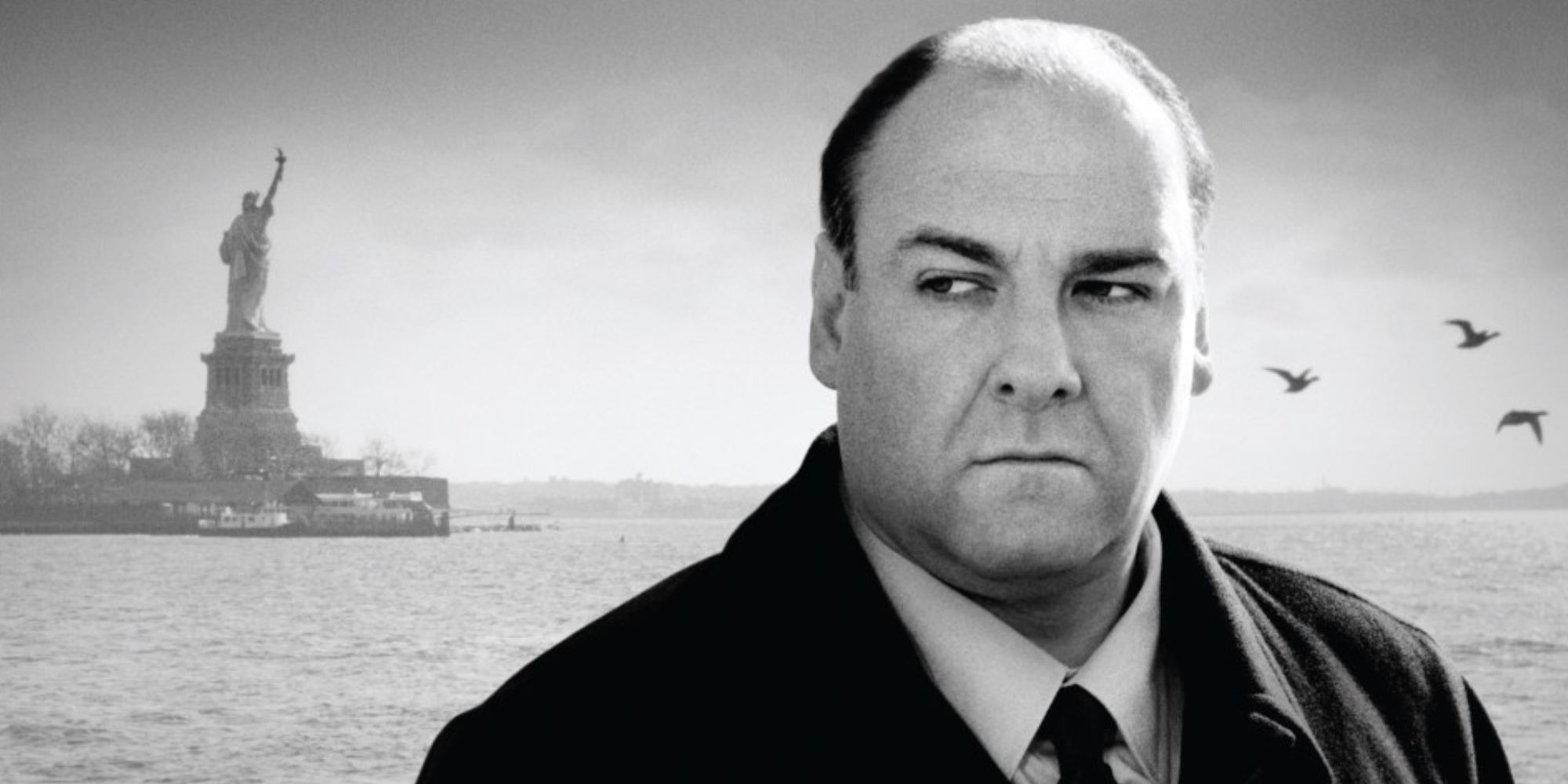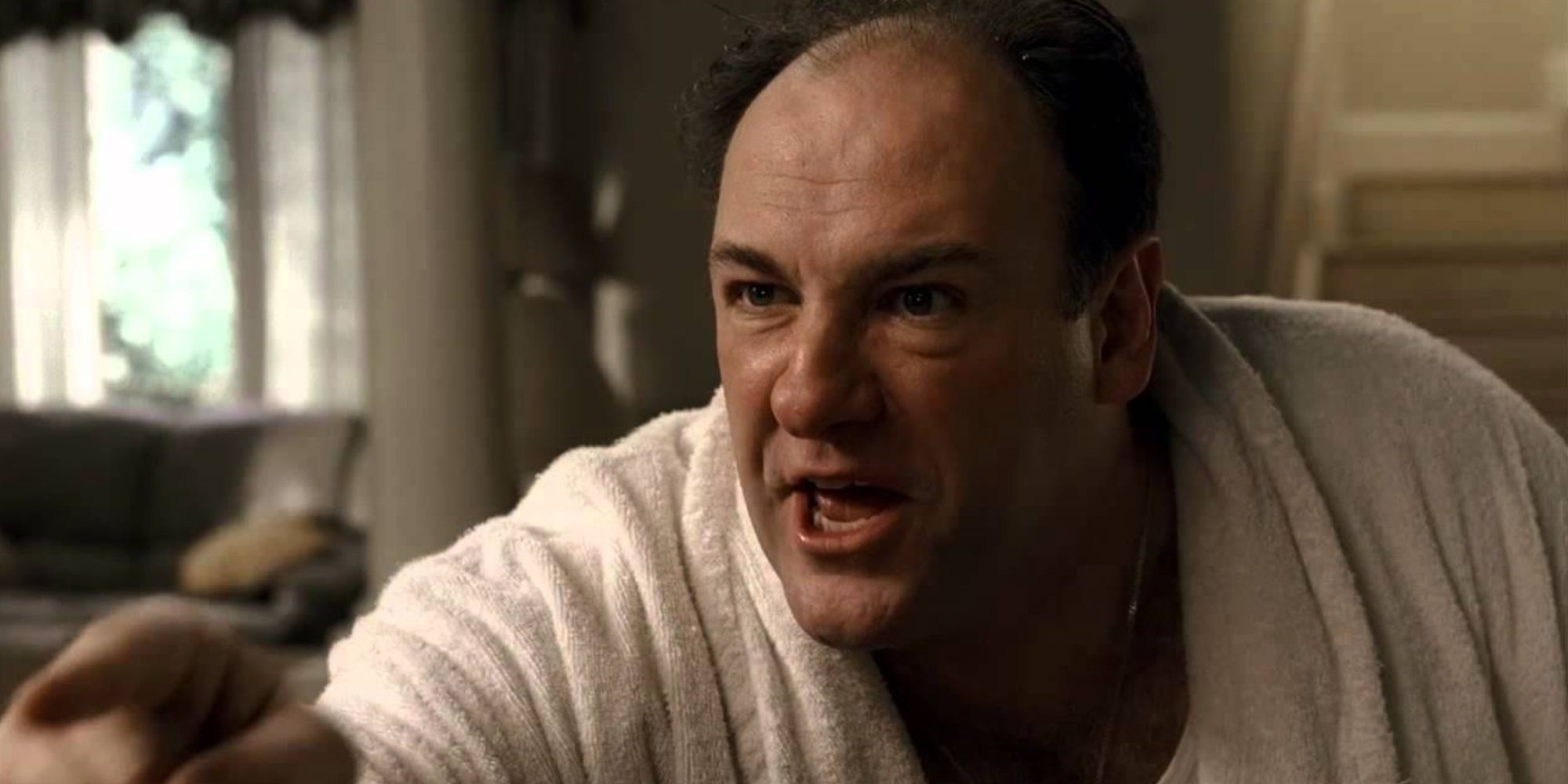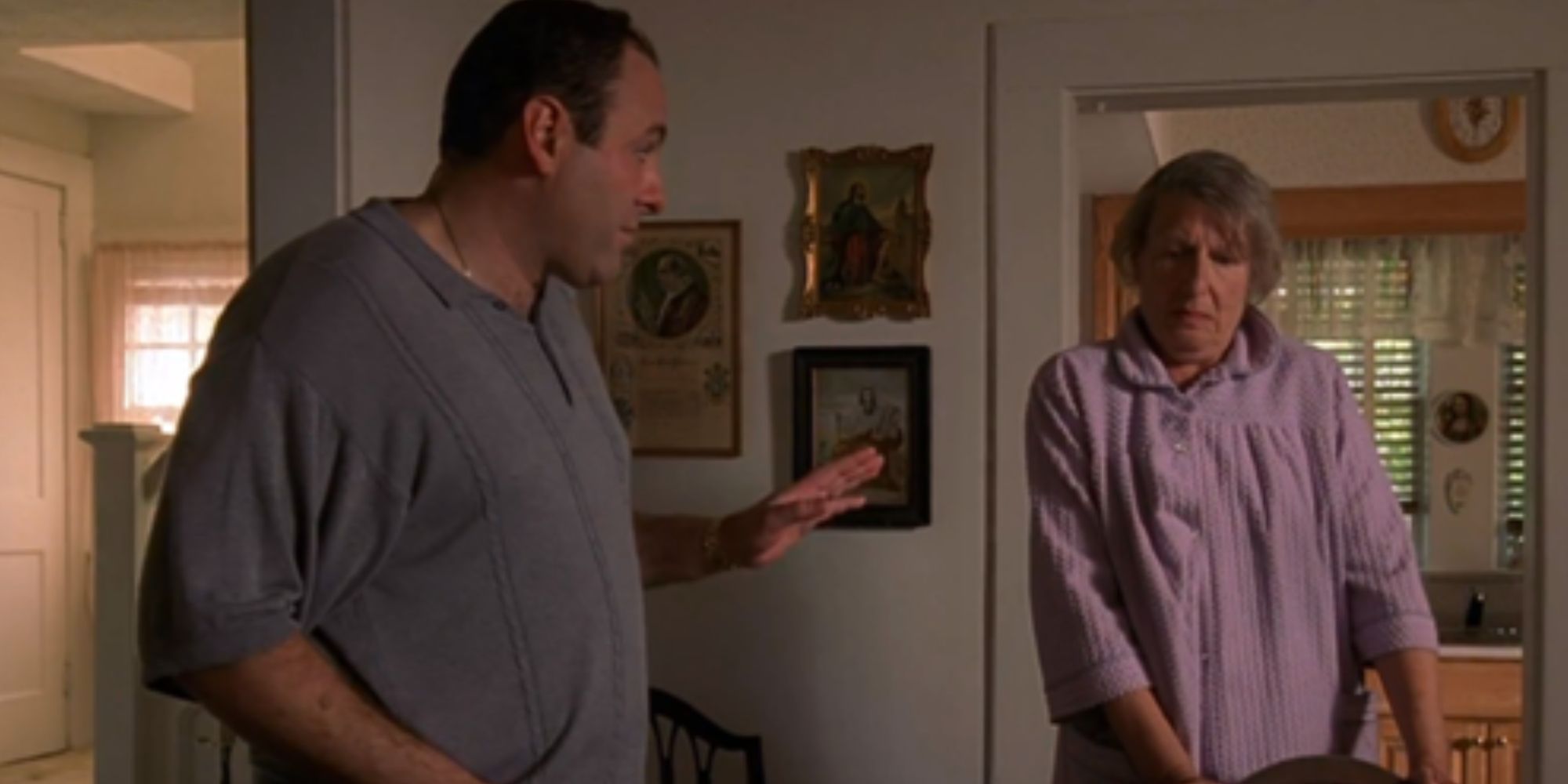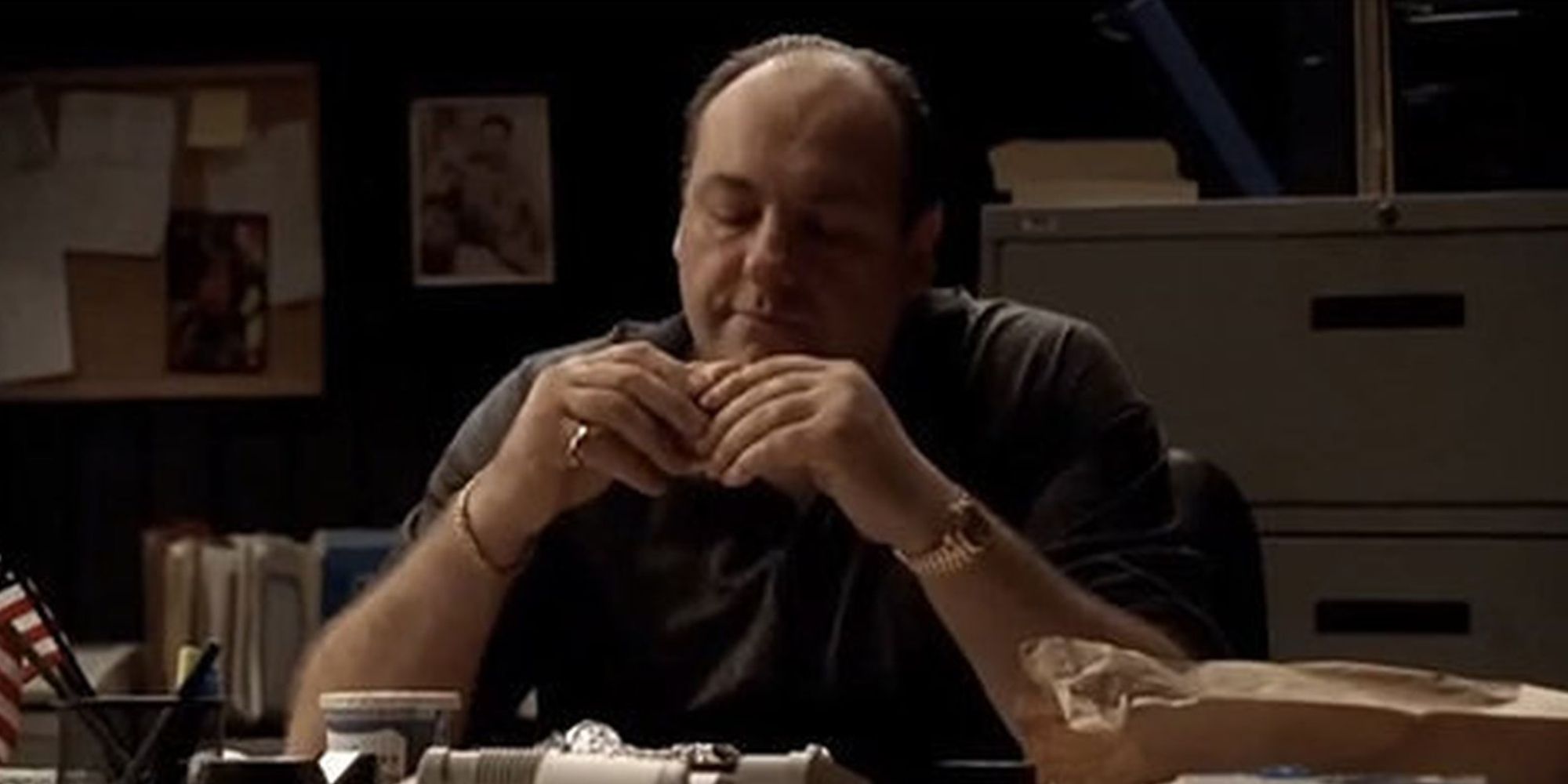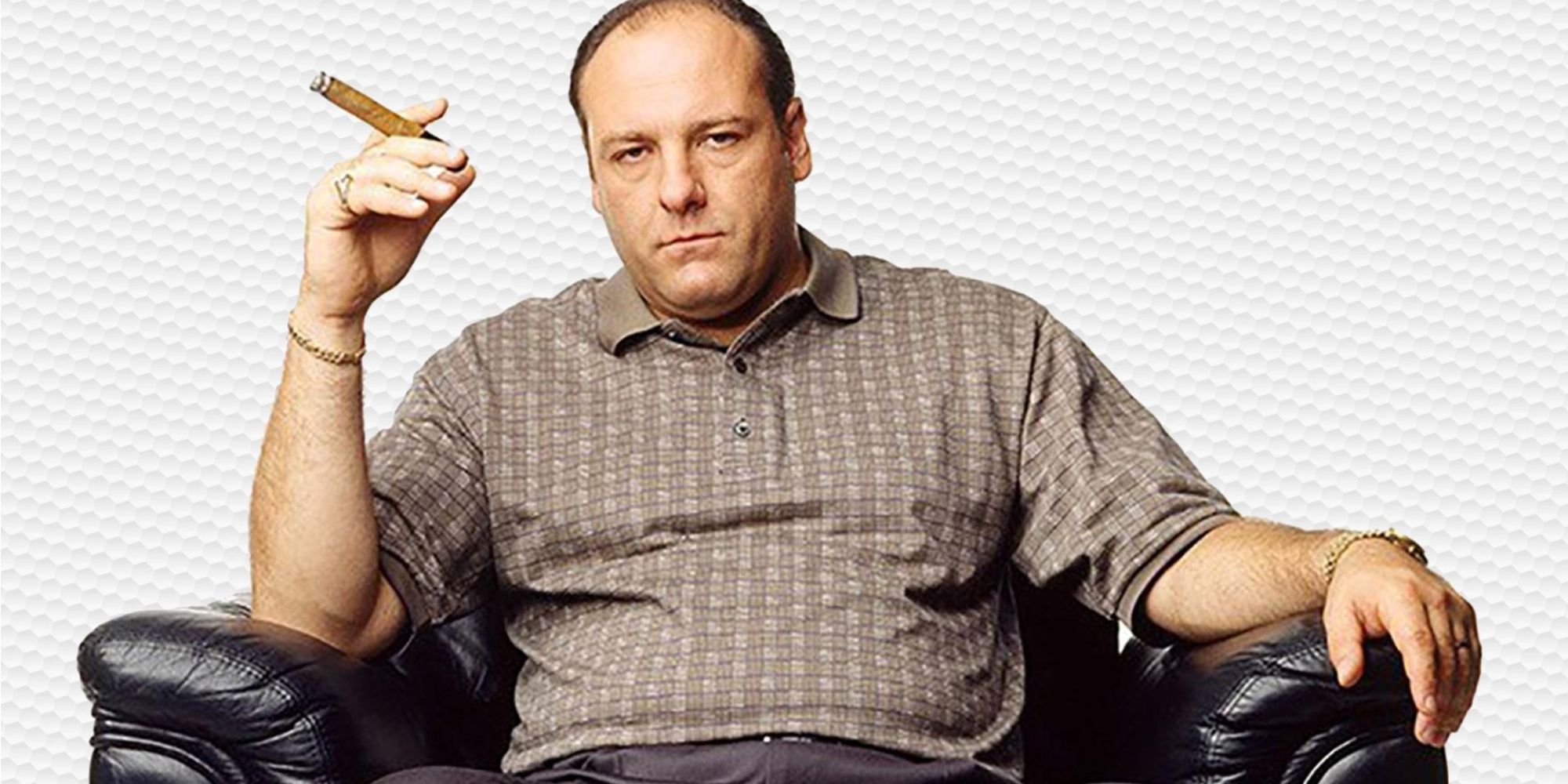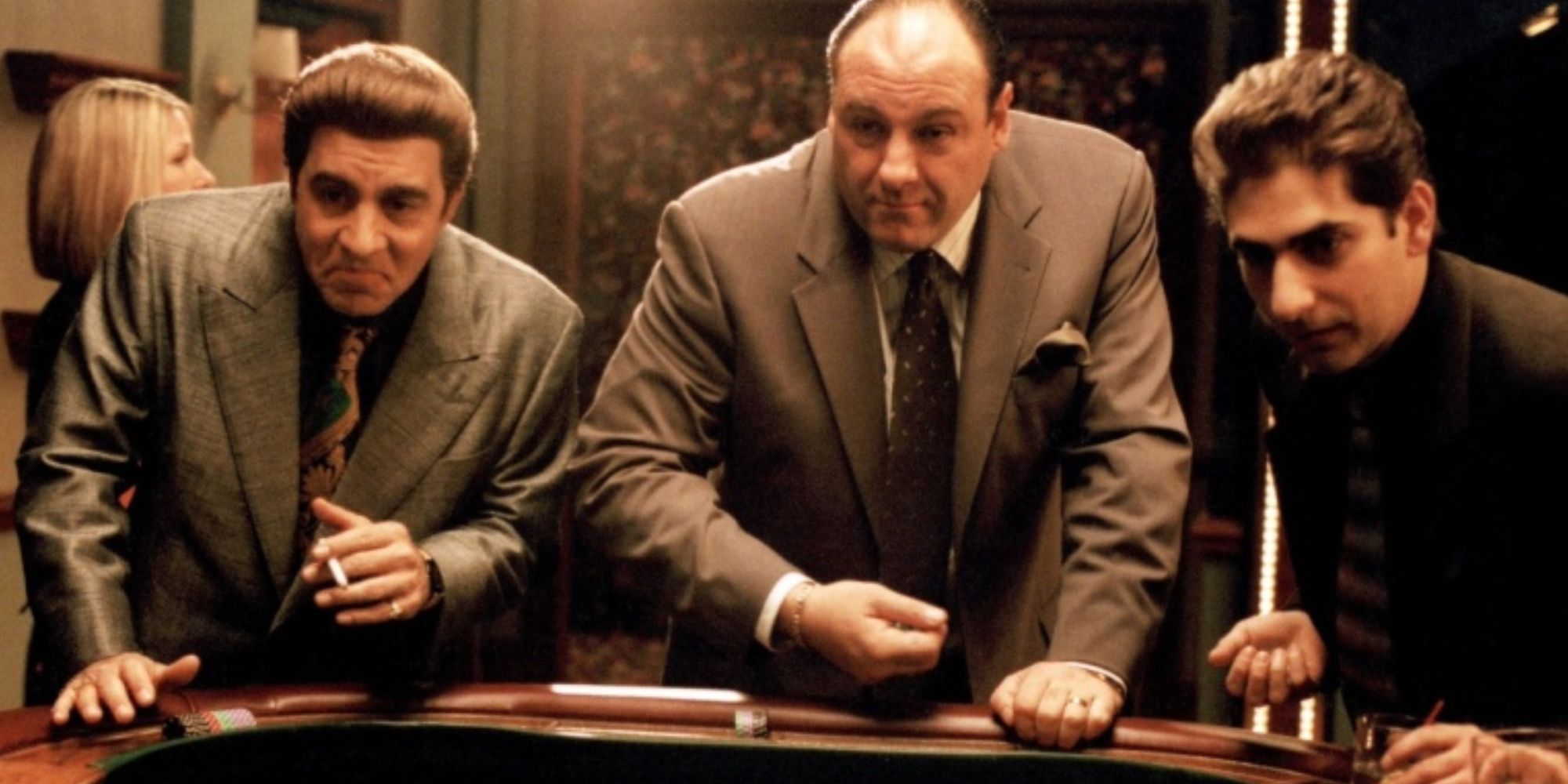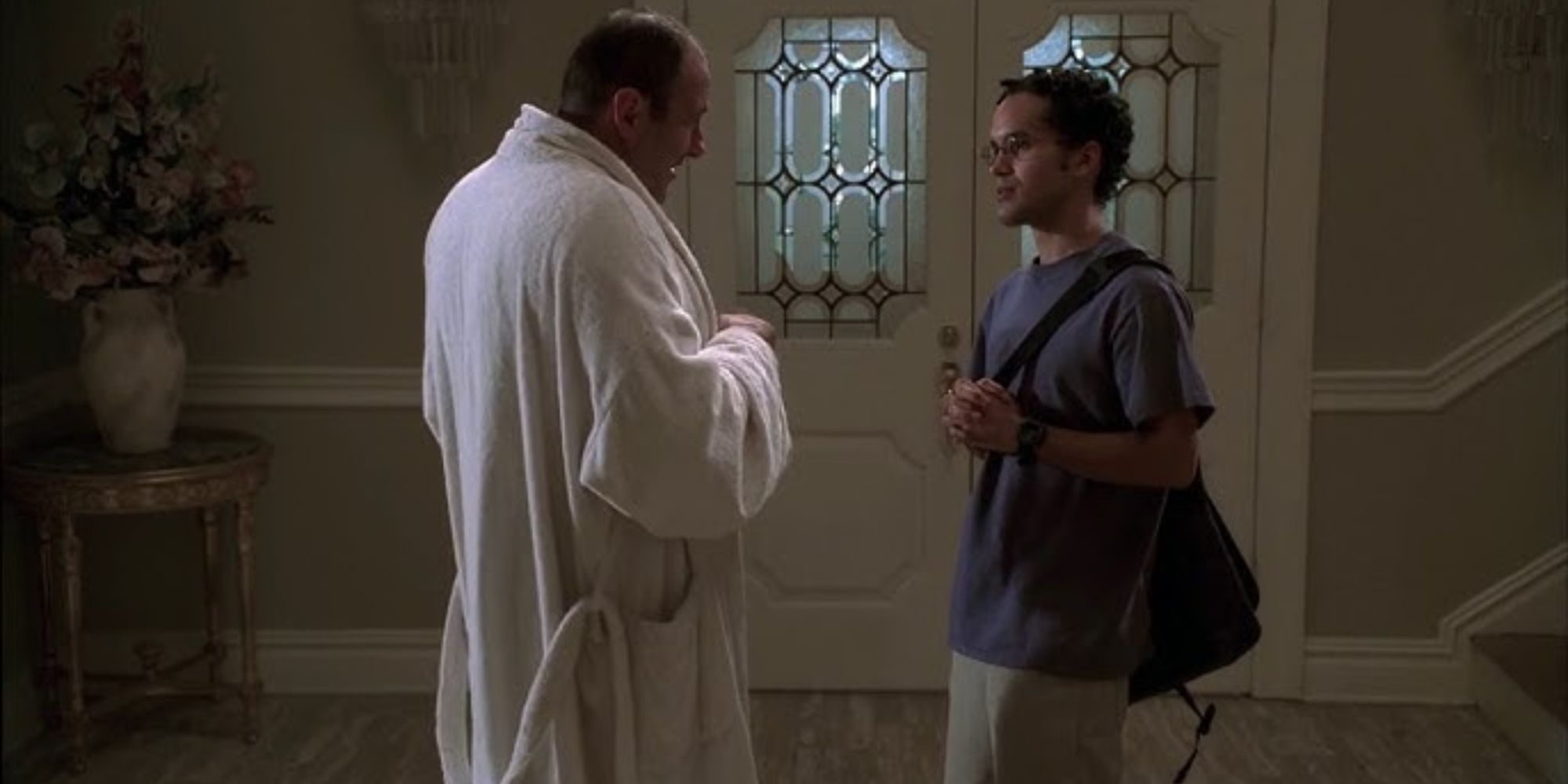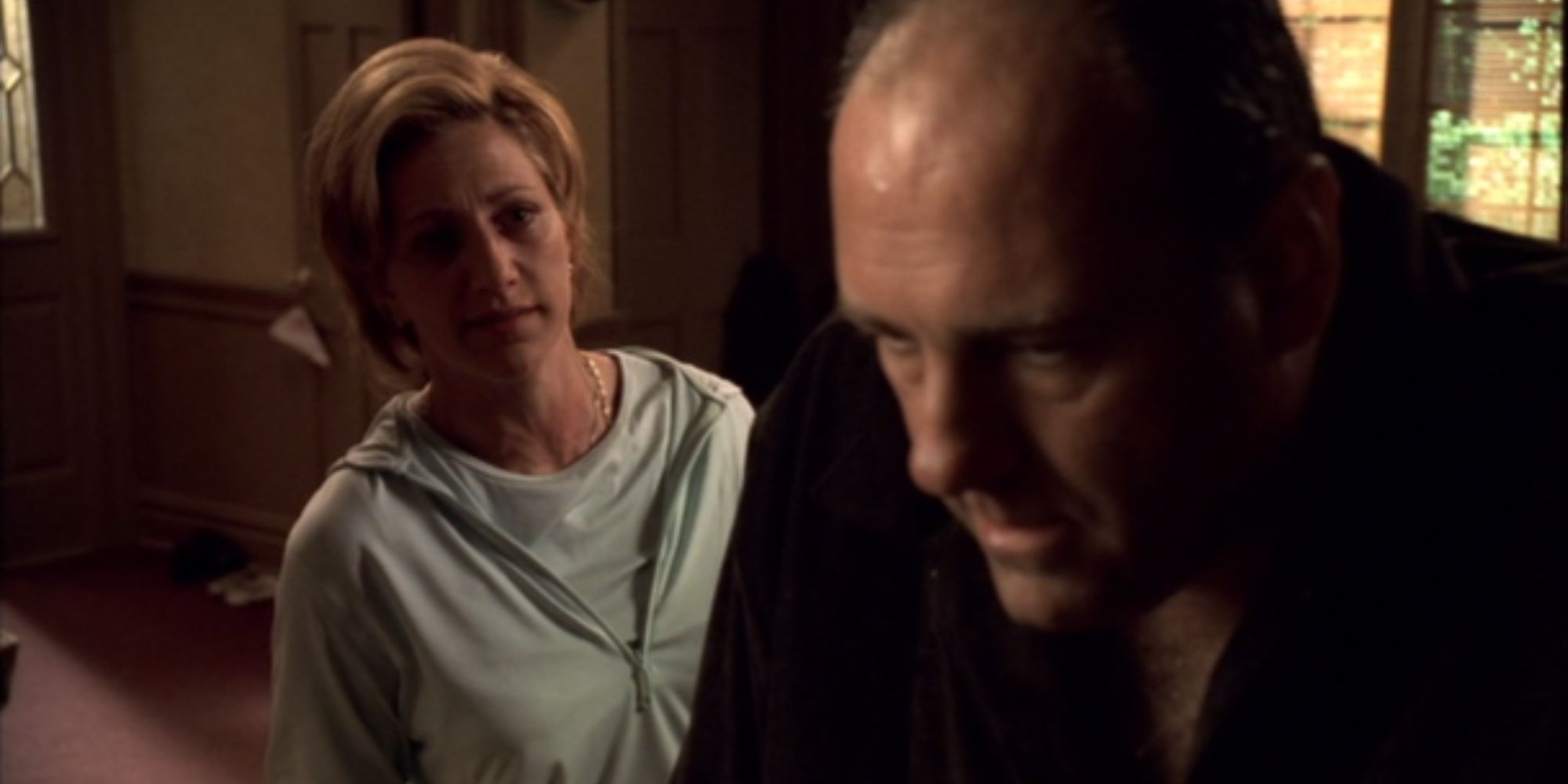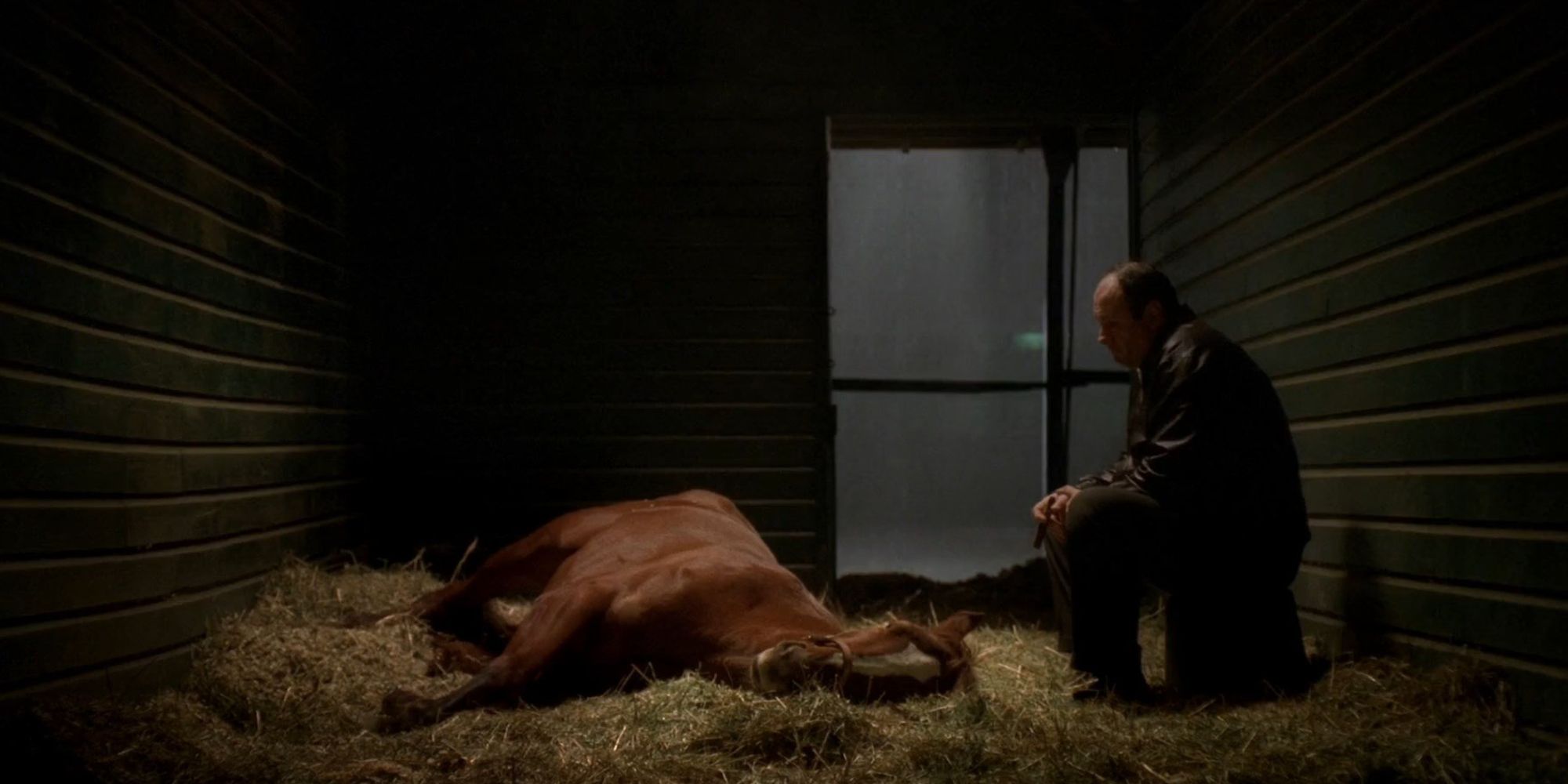Widely regarded as the television series that opened the flood gates to the golden age of TV, The Sopranos exploded onto the scene on January 10, 1999, cementing HBO as the home of quality storytelling. Already flexing their critical muscles with early prison drama Oz in 1997, HBO tapped into the public's thirst for mob-based stories and flipped the genre on its head by mixing in a fascinating character study of one of the most enduring characters in television history, Tony Soprano.
Brought to life by the iconic performance of the late great James Gandolfini, Tony Soprano, the series' patriarchal star, is undoubtedly one of the most intricately created and performed charters in the history of all narrative storytelling. And that's not an exaggeration. Over nine years and 86 episodes, Tony is the only character to appear in every single one and demands your attention with every scene. From the moment we see him waiting in his psychiatrist's office in episode 1 to the very last scene of the finale on June 10, 2007, audiences were riveted by the leader of New Jersey's "glorified crew," and with the shows' reputation today, that fascination won't be going anywhere soon.
'Madone,' That Temper!
It's beyond clear that Tony Soprano has a major issue with impulse control and a general inability to keep his temper in check. Stemming from a childhood that saw brutal violence on a daily basis, from street beatings to appalling treatment of women, Tony was bound to struggle with his uncontrollable fits of rage.
The series is filled with scenarios where Tony, for one reason or another, goes off on violent and abusive tirades. It's kind of like a 280-pound child throwing a fit, triggered when things don't go his way or he's inconvenienced in some manner. A very few of these moments include; tearing a phone off a wall, abusing a nosy boat owner, killing associates, and losing it during a family game of Monopoly.
He's A Mother's Boy
Tony’s mother, Livia Soprano, loomed over his life since he was a kid in Newark, playing near the front stoop. Played pitch perfectly by Nancy Marchand. Livia was the main thing in Tony’s life that pushed his mental buttons. Revealed over the series in the outstanding psychiatry scenes, the audience gets to peek inside Tony's head and see just how much sway his mother had over him.
The show also does a great job of retelling moments from Tony's youth in flashback scenes. Significant points in his life affect how his mind functions now, and they almost always involve his mother in some form. With the recent release of The Sopranos prequel movie The Many Saints of Newark, the relationship between Liv and Tony is given even more light with quite a few details that paint a clearer picture of why Tony grew into the man he was.
He Likes To Eat
Many people may think that the weight gain we see Tony go through during the series is because actor James Gandolfini just got bigger over time. The truth is Tony’s girth expanded because of the traumas the character was going through.
We don’t just see Tony overeating in the show so that he has something to do in the scene; it’s strategically woven throughout the show to demonstrate his constant need for satisfaction. He can’t find it emotionally, so he gorges on food to find some joy in his torturous life.
Frankly, He's Got A Problem With Authority
Pride comes before a fall.......and it caused Tony a heap of grief. In one of the series' seminal moments, Tony's consigliere, Silvio Dante, iconically played by E-Street Band member, Steven Van Zandt, accuses Tony flat out that he has a problem with authority in a situation that was causing major problems to all the members of his gang.
This is just one of the many examples where Tony's pride had detrimental effects on his life. It boils down to this. He doesn't like being told what to do. The ego necessary to run an organized crime ring has to be profound. That same ego becomes a crutch to Tony as he's constantly blinded by what's best for him and his crew.
He's Always Chasing It
In the show, Tony is described as someone who's always seeking action. Much like a shark that always has to be moving to survive, Tony is the type of person who gets bored easily and always needs to be entertained. The manner of this "entertainment" is his issue, though. Unlike the average person who can find joy through activities like vacations or simply going to the movies, Tony seeks his thrills in a truly destructive manner.
He seems to be seeking a life of hedonism and trying to satisfy every carnal desire that comes his way, whether it be lust, food, gambling, or excitement. This is textbook denial. Denial of the crippling depression that he's trying to run away from through unhealthy habits of "chasing" his happiness.
He's Pretty Racist
Make no bones about it; Tony is a bigot. He never really had a chance to grow out of the poor examples his parents set for him. This type of behavior was ingrained into him at childhood and has stuck with him into adulthood. Constantly called out for it by his daughter Meadow, Jamie-Lynn Sigler, she's genuinely sickened with his behavior, mainly when it's directed to a boy she brings home one day.
And that's just one instance. Barely an episode goes by that Tony doesn't disparage some race or another through either jokes or violence. He mocks clothes, foods, traditions, names, and anything culturally different from what he knew growing up. While deep down, he sees a lot of it as "just fooling around," it can't be said that Tony doesn't have hate brimming out of him, leading him to make disastrous decisions in his life.
He Can't Stop Cheating On His Wife
Tony once compared himself to the animated character Popeye by quoting his catchphrase, "I am what I am." He used it when being accused of being a scoundrel and serial cheater, which, let's face it, he most definitely is. Gangsters (at least their fictional counterparts) have a nasty habit of cheating on their wives and partners, and Tony is no different. It's by far the most damaging character trait that he has when it comes to his family and mental health.
In one of the series' best episodes, the season 4 finale "Whitecaps," Carmella finally snaps due to his disrespect and has a mini-breakdown while throwing him out of the house. The drama continues as they have a verbal slugfest that tears open and the emotion and anguish she's suffered under his philandering ways, cultivating in one of the most real scenes in the entire series.
He's An Animal Lover
In a crucial moment towards the end of the series, Dr. Melfi (Lorraine Bracco) wonders if her efforts with Tony have been a manipulative waste of time. There's an interesting sequence where she reads in a medical journal about criminals with antisocial personality disorder and therapy: "the criminal sentimentality reveals itself in compassion for babies and pets." If you've paid close attention to the show, you know that is definitely true in Tony's case.
From the ducks in his pool in the very first episode to the untimely death of little Cosette, it's undeniable that Tony has a real soft spot for animals. Stories about his childhood dog Tippy and how he reacts when he learns about the fate of his beloved racehorse Pie O My are all examples that paint a picture of Tony, who doesn't know how to show emotions of love and empathy to actual people, so it manifests itself in affection for animals. It's one of the most telling traits of his personality that exposes his deep-seated depression.

